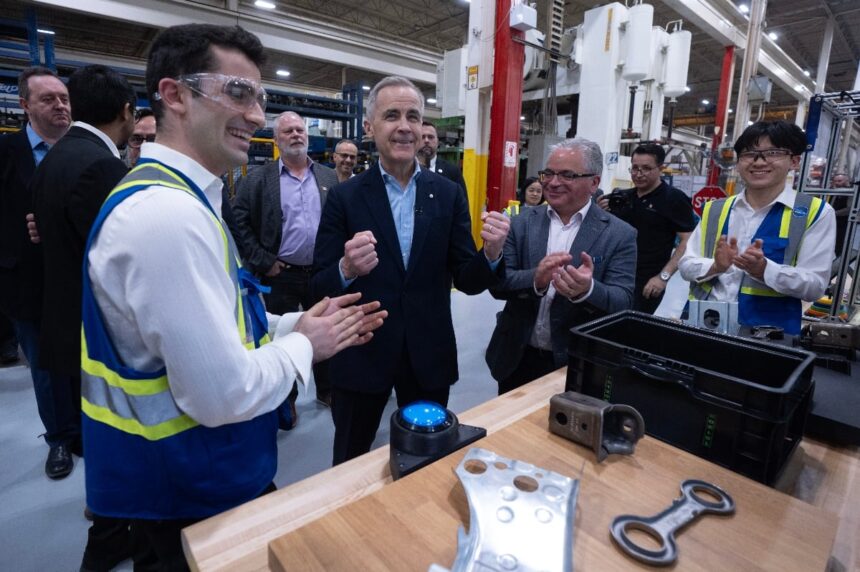Canadian auto industry leaders are mounting an intensified campaign to persuade Finance Minister Mark Carney to abandon the federal electric vehicle sales mandate, citing concerns about market readiness and consumer adoption rates across the country.
The mandate, implemented under the previous administration, requires automakers to ensure that 20% of their new vehicle sales are zero-emission models by 2026, with targets escalating to 60% by 2030 and 100% by 2035. Industry representatives argue these timelines are increasingly unrealistic given current market conditions.
“The Canadian consumer simply isn’t adopting electric vehicles at the rate necessary to meet these arbitrary targets,” said David Adams, president of the Global Automakers of Canada, during yesterday’s industry roundtable in Ottawa. “We’re asking Minister Carney to recognize market realities rather than forcing a transition that neither dealers nor consumers are prepared for.”
Recent sales data indicates EVs currently represent approximately 9.5% of new vehicle purchases nationwide, with significant regional disparities. While British Columbia and Quebec show adoption rates above 15%, most provinces remain below 5%, creating concern about potential supply imbalances and inventory challenges for dealers.
The Canadian Vehicle Manufacturers’ Association has submitted a comprehensive proposal to the Finance Ministry outlining alternative approaches, including enhanced consumer incentives, expanded charging infrastructure investments, and more flexible timeline implementations based on regional adoption patterns.
“We share the government’s environmental goals,” explained Brian Kingston, CVMA president. “But mandating specific sales percentages without addressing fundamental barriers like charging infrastructure, vehicle affordability, and consumer education will create market distortions that ultimately harm both the industry and consumers.”
Minister Carney’s office has acknowledged receiving the industry’s concerns but maintains that climate targets remain a priority for the government. A spokesperson indicated that discussions are ongoing regarding potential adjustments to implementation timelines without abandoning long-term electrification goals.
Environmental advocacy groups have strongly criticized the industry’s push, arguing that automakers have had ample time to prepare for the transition and that any policy retreat would undermine Canada’s climate commitments.
“This is a familiar industry tactic—delay, delay, delay,” said Climate Action Network Canada’s Caroline Brouillette. “The technology exists, consumer interest is growing, and the climate crisis isn’t waiting. What’s missing is sufficient industry investment and commitment.”
The dispute highlights broader tensions between economic pragmatism and environmental imperatives as Canada navigates its energy transition. Industry analysts note that global market trends show accelerating EV adoption, though at rates that vary significantly between markets.
The Finance Minister is expected to announce a decision on potential mandate adjustments following next month’s economic update, placing the issue at the center of Canada’s ongoing debate about how quickly to pursue decarbonization goals.
As this policy struggle unfolds, a critical question remains: Can Canada balance legitimate industry concerns about market readiness with the urgent need to reduce transportation emissions, or will this conflict force a fundamental reassessment of how government and industry collaborate on climate policy?










